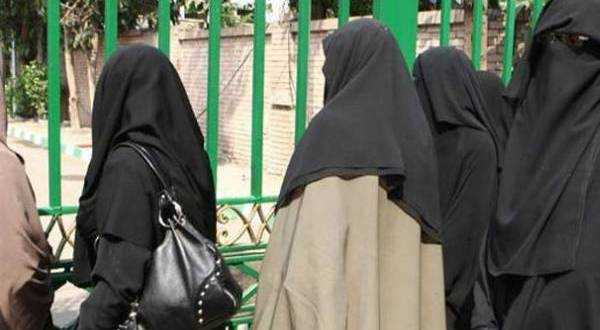CAIRO: The Egyptian parliament is drafting a law banning women from wearing the veils in public places.
The ban will apply to wearing the clothing in public places and government institutions, it has been reported.
The veils are common in Egypt which is a predominantly Muslim country. MP Amna Nosseir, professor of comparative jurisprudence at Al-Azhar University, who has backed the ban, said that wearing the veil is not a requirement of Islam and in fact has non-Islamic origins. She has argued that it is a Jewish tradition which appeared in the Arabian Peninsula prior to Islam and that a variety of Quran passages contradict its use.
Instead, she has advocated that the Quran calls for modest clothing and covered hair, but does not require facial covering.
Whereas, a largest section of Muslim clerics and scholars clarified it that veil’s obligation is proved by the Holy Quran and quote Ayah 31 of Suratun-Noor means:
“ [O Prophet] tell the believing women to restrain their gaze (the forbidden look) and to guard themselves from sinning (fornication or adultery) and not to display excessive jewelry and make up (to prevent seduction) except what is normally revealed and to draw (extend) their khumurst (Hijabs) over their chests. They should not reveal their beauty (removing their head scarves because hair is part of the beauty) to anyone but their husbands, or their fathers, or their husbands’ fathers (father in law), or their sons, or their husbands’ sons (step sons), or their brothers, or their brothers’ sons (nephews), or their sisters’ sons (nephews), or other women of acquaintance, or their slaves, or the subservient male (mentally handicapped) servants who are not attracted to women, or children (not pubescent) who have no awareness of the hidden aspects of women. They should [also] not stomp their feet in order to seduce and draw men’s attention to their hidden ornaments (anklet). O believers repent to Allah so that you may succeed.”
This ayah makes clear what must be covered, a woman’s unlawful nakedness, and infront of whom a woman may uncover.
Ayah 59 of Suratul-Ahzab means:
“O Prophet Enjoin your wives, your daughters, and the wives of believers to draw their [jalabeeb] cloaks (outer garment) over them [when they go out]. That is more proper, so that they may be distinguished and not be harassed. Surely, God is the most forgiving and merciful.”
A number of restrictions have been placed on wearing the niqab in Egypt in recent years. In February, Cairo University banned nurses and doctors from wearing it in medical schools and in teaching hospitals, arguing the ban would: “protect patients’ rights and interests.”
In September of last year, the university also banned academic staff from wearing the niqab in classrooms in response to complaints from students that it was too difficult for niqab wearers to communicate effectively with students.





